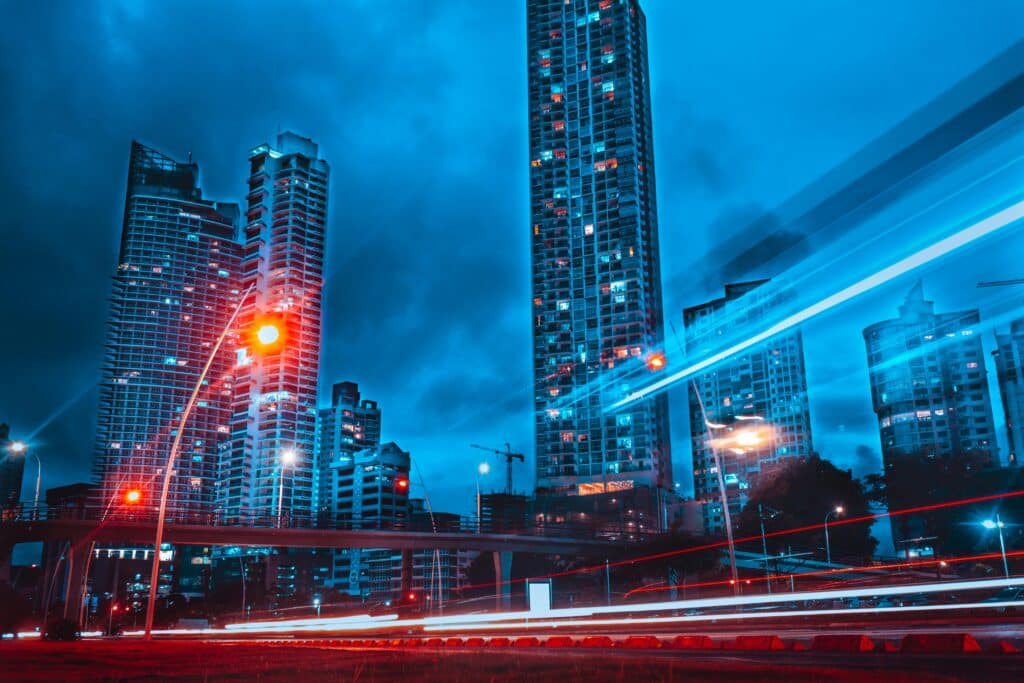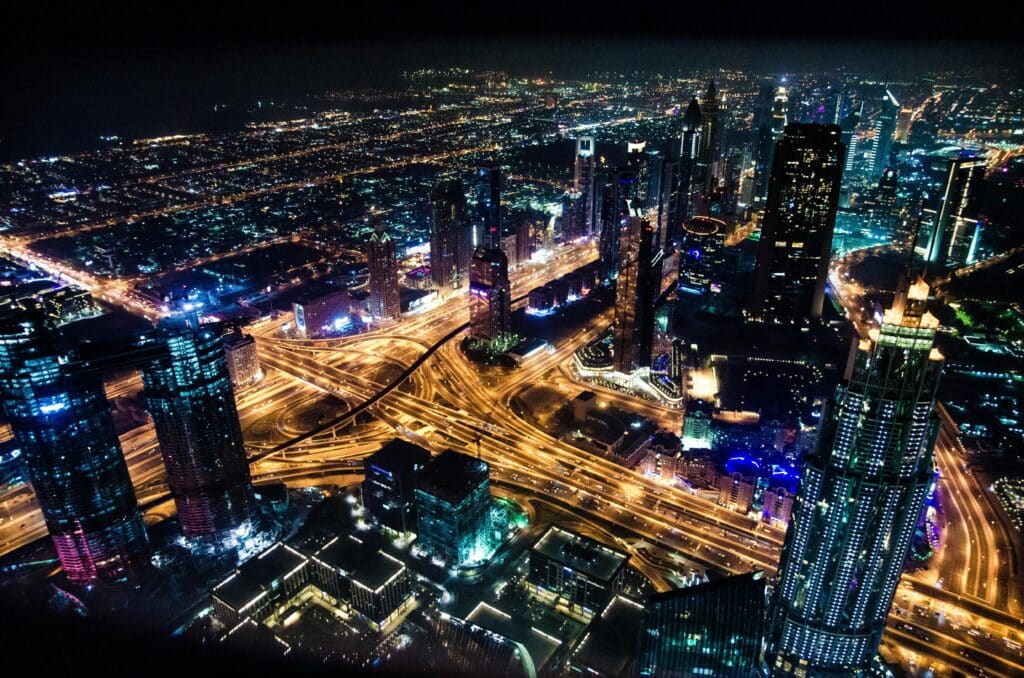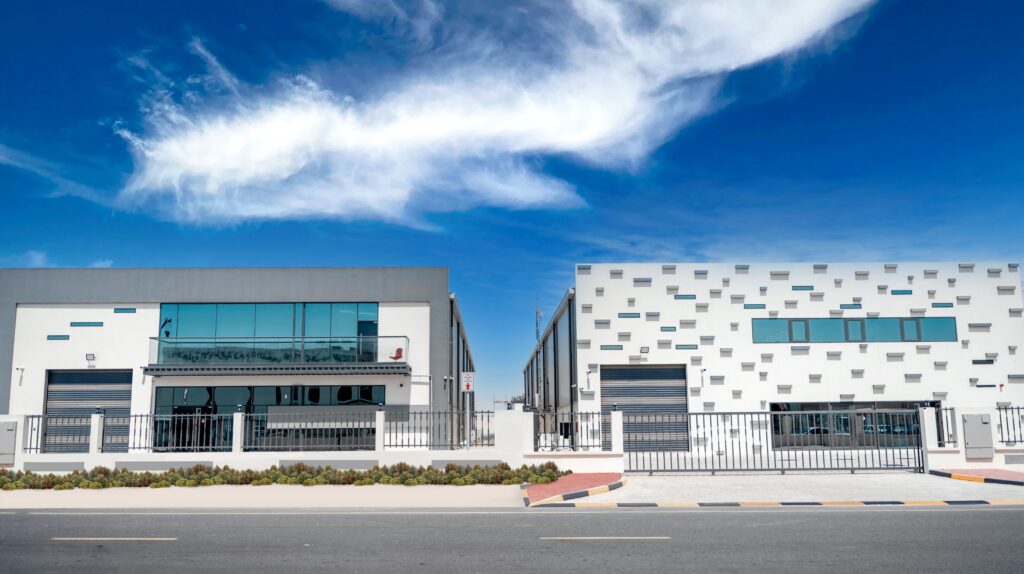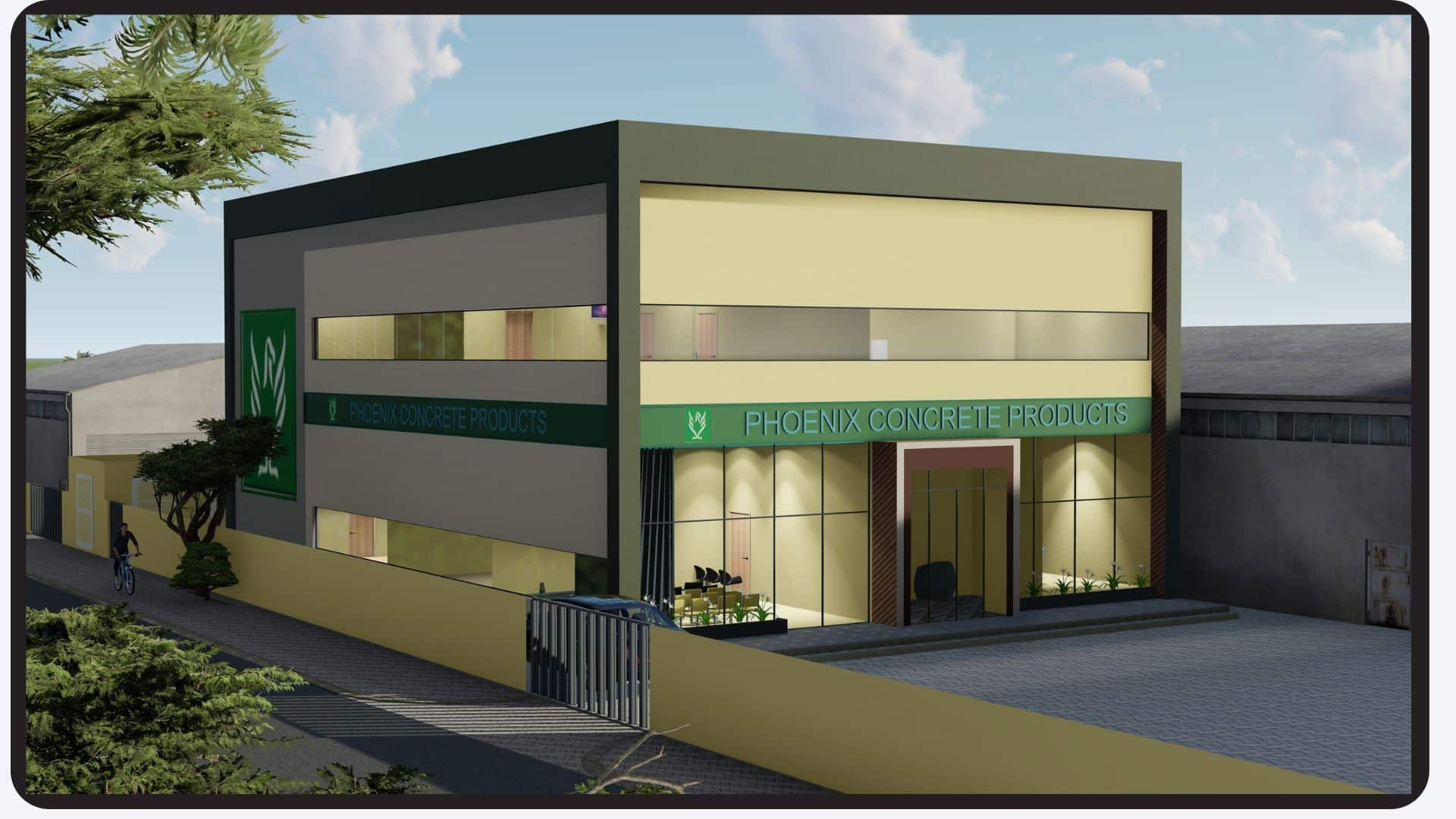Introduction
As of 2018, 55% of the world’s population resides in urban areas, a figure projected to rise to 68% by 2050. This rapid urbanization underscores the need for cities to evolve into “smart cities” to manage resources efficiently and enhance residents’ quality of life.
Cities around the world are getting smarter, and Dubai is leading the way. But what exactly is a smart city, and why is this concept so important for the future? From Dubai’s smart city strategy to blockchain integration in governance, let’s dive into how technology is reshaping urban life and why this transformation matters.
What is a Smart City?
A smart city is an urban area that uses technology and data to improve the way it functions. Think of it as a city that thinks for itself—using the Internet of Things (IoT), artificial intelligence (AI), and other digital tools to create a better environment for its residents.
The goal of a smart city is to:
- Enhance efficiency in transportation, energy, and public services
- Improve sustainability by reducing waste and optimizing resources
- Increase citizen engagement through digital governance and real-time data access
- Boost economic growth by leveraging tech-driven infrastructure
Dubai is a perfect example of this concept in action. With its Dubai Smart City Strategy, the city has implemented cutting-edge technologies to improve mobility, energy use, public services, and even governance.

Why Do We Need Smart Cities?
With urban populations booming, cities need to become more efficient, sustainable, and connected. Here’s why smart cities are essential for the future:
- Managing Rapid Urbanization
- By 2050, two-thirds of the world’s population will live in cities. Without smart systems in place, overcrowding could lead to traffic congestion, pollution, and resource depletion.
- Enhancing Public Services
- Smart cities use real-time data to optimize services like waste management, transportation, and emergency response, making them more efficient and citizen-friendly.
- Boosting Sustainability
- Climate change is a major concern. Smart cities use renewable energy, smart grids, and automated infrastructure to reduce carbon footprints and make cities greener.
- Improving Security & Safety
- With AI-driven surveillance and smart policing, crime detection and prevention are more effective in smart cities.
Dubai recognized these needs early on and launched its smart city initiatives to stay ahead of the curve.
Read more: Smart Consutrction Technology – Breakdown
What is Smart City Technology?
To function efficiently, a smart city relies on a combination of technologies that collect, analyze, and act on data. Some of the key innovations include:
Internet of Things (IoT) and Connectivity
IoT devices—like smart traffic lights, environmental sensors, and surveillance cameras—constantly collect and transmit data. This allows city administrators to monitor and optimize operations in real time.
Artificial Intelligence and Automation
AI powers predictive analytics in public services. For example, AI can forecast traffic patterns, adjust streetlights, or automate waste collection to prevent overflows.
Smart Energy and Sustainability
Dubai is known for its commitment to sustainability. Through smart grids, solar power, and AI-powered resource management, Dubai’s smart city strategy focuses on reducing energy consumption while maximizing efficiency.
Public Safety and Surveillance
Advanced AI-driven security systems help authorities monitor high-risk areas, track suspicious activity, and respond quickly to emergencies.
Dubai has taken all these innovations and created a seamless, tech-driven city that prioritizes both efficiency and comfort for its residents.
How Do Smart Cities Work?
A smart city functions in a four-step process:
1. Data Collection
Smart cities rely on sensors and IoT devices to collect real-time data from transportation, energy usage, weather conditions, and even citizen activities.
2. Data Analysis
AI and machine learning analyze this data to identify patterns and predict trends—like where traffic congestion might occur or how energy demand will fluctuate.
3. Communication
The data insights are shared with decision-makers, government agencies, and even citizens through digital platforms.
4. Action and Optimization
City officials use this data to implement solutions, such as adjusting traffic lights to reduce congestion or activating emergency response systems in real time.
Dubai has perfected this cycle, making real-time decision-making a key part of its Dubai Smart City Strategy.

Dubai Smart City Strategy
Dubai isn’t just implementing smart technologies—it has a clear roadmap for transforming into the world’s smartest city. The Dubai Smart City Strategy focuses on:
1. Smart Infrastructure
- Advanced transportation networks with AI-powered traffic management
- Smart water and electricity grids to optimize energy consumption
- Sustainable urban planning with AI-driven real estate projects
2. Smart Government Services
Dubai aims to move all government services online, offering paperless transactions and AI-powered support to citizens and businesses.
3. Open Data & Citizen Engagement
Dubai is developing smart applications that allow residents to access government services, pay bills, and get real-time city updates through a single digital platform.
Dubai is also using blockchain technology to enhance security, transparency, and efficiency in government operations.
Dubai Smart City Blockchain
One of the most exciting innovations in Dubai’s smart city strategy is the use of blockchain.
Blockchain is a secure, decentralized digital ledger that ensures data integrity and transparency. In Dubai Smart City Blockchain projects, this technology is being used for:
- Government Transactions
- By 2025, Dubai aims to process 100% of government documents using blockchain, reducing paperwork and improving efficiency.
- Real Estate and Property Management
- Smart contracts on blockchain streamline property sales and leasing, ensuring secure, fraud-proof transactions.
- Healthcare & Medical Records
- Blockchain ensures secure and accessible health data, allowing hospitals and clinics to share medical records seamlessly.
- Business & Trade Licensing
- Blockchain makes business registration and licensing faster and more transparent.
By integrating blockchain into smart city initiatives, Dubai is setting a global benchmark for secure and
efficient urban governance.

MSH: Supporting Smart Cities with Infrastructure Solutions
In the context of smart city development, robust infrastructure and efficient energy systems are paramount. , MSH contributes significantly to these areas through services such as Electrical Wiring & Installation and Green Energy: Solar System Setup & Integration. These offerings ensure that urban projects are equipped with reliable electrical frameworks and sustainable energy solutions, aligning with the goals of modern smart cities.
Conclusion
Smart cities are no longer a futuristic concept—they are a necessity for managing urbanization, improving sustainability, and enhancing citizens’ quality of life. Dubai’s smart city strategy is a prime example of how technology, infrastructure, and innovation come together to build a more connected and efficient urban environment.
With AI-driven infrastructure, IoT-based solutions, and blockchain-powered governance, Dubai is setting a global benchmark for smart city development. The integration of sustainable energy, digital government services, and smart transportation ensures that the city remains at the forefront of urban innovation.
As cities worldwide embrace similar initiatives, Dubai’s success provides a blueprint for future smart cities. By leveraging technology, open data, and citizen engagement, smart cities can create more sustainable, secure, and intelligent urban ecosystems that cater to the needs of both present and future generations. The future of urban living is smart, and Dubai is leading the way.

